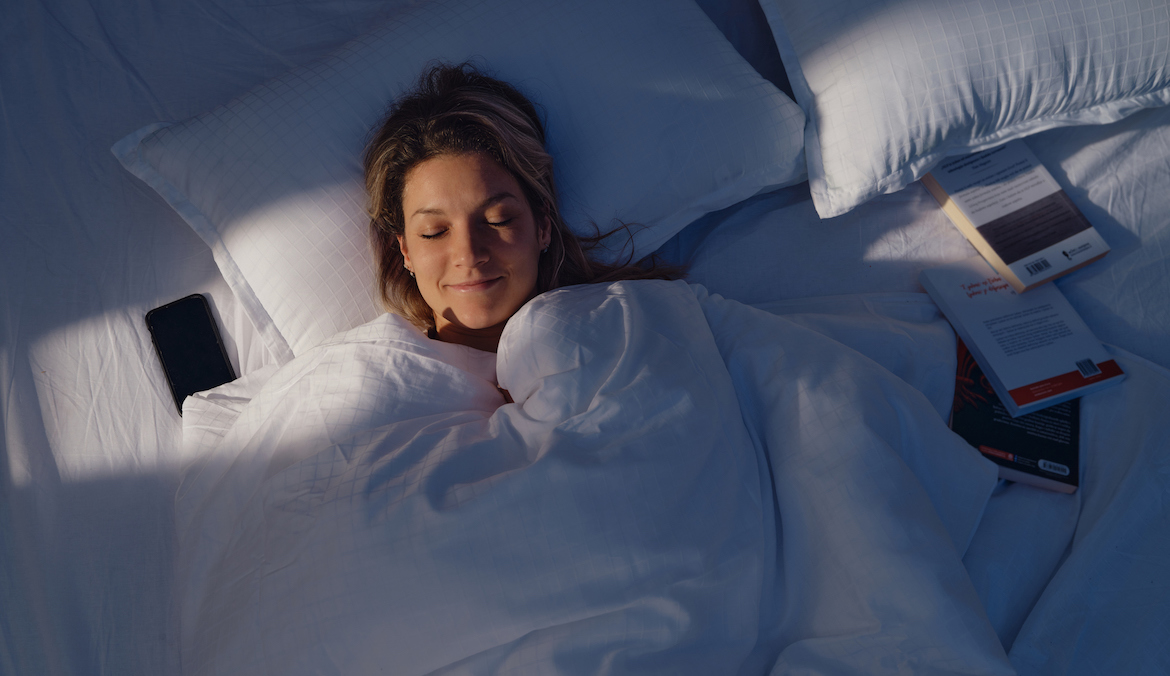Moon Breathing for Calm and Tranquility: A Guide to Better Sleep
Alapfogalmak
Breathing techniques like moon breathing can induce relaxation and improve sleep quality by activating the parasympathetic nervous system.
Kivonat
Moon breathing, an ancient Indian practice, involves breathing through the left nostril to access a calming energy ideal for relaxation and better sleep. Research supports its benefits in reducing stress, improving sleep quality, and promoting a sense of calm. By regulating breath and increasing CO2 levels in the blood, moon breathing enhances circulation and mental well-being. It is a simple yet powerful technique that can be practiced anywhere to alleviate anxiety and promote restful sleep.
Összefoglaló testreszabása
Átírás mesterséges intelligenciával
Hivatkozások generálása
Forrás fordítása
Egy másik nyelvre
Gondolattérkép létrehozása
a forrásanyagból
Forrás megtekintése
www.wellandgood.com
The Next Time You’re Struggling To Fall Asleep, Try ‘Moon Breathing’ for Calm and Tranquility
Statisztikák
Activation of the parasympathetic nervous system relaxes the body by slowing the heart rate and reducing blood pressure.
Moon breathing has been associated with reduced stress, improved sleep quality, and a sense of calm.
A study found that left nostril breathing increased EEG activity in brain regions linked to relaxation.
Practicing moon breathing daily led to improved self-reported sleep quality compared to a control group.
Restricting airflow during moon breathing improves respiratory mechanics and reduces hyperventilation-triggered anxiety.
Moon breathing increases CO2 levels in the blood, enhancing circulation and boosting mental state.
Idézetek
"People who practice moon breathing report experiencing reduced stress, improved sleep, and a sense of calm and relaxation." - Raj Dasgupta, MD
Főbb Kivonatok
by Renee Cherry : www.wellandgood.com 12-04-2023
https://www.wellandgood.com/moon-breathing-sleep/
Mélyebb kérdések
How does moon breathing compare to other relaxation techniques for improving sleep?
Moon breathing, also known as chandra bhedana pranayama, stands out among other relaxation techniques for its unique focus on the breath's connection to the parasympathetic nervous system. Unlike some methods that may involve visualization or progressive muscle relaxation, moon breathing directly targets calming the body by slowing down heart rate and reducing blood pressure through left nostril breathing. This specific approach helps activate the restorative state conducive to deep sleep by toning down the sympathetic nervous system responsible for fight-or-flight responses.
What are potential drawbacks or limitations of relying on moon breathing as a sleep aid?
While moon breathing offers numerous benefits for mental well-being and sleep quality, there are potential drawbacks or limitations to consider when relying solely on this technique as a primary sleep aid. One limitation is individual variability in response; not everyone may experience immediate improvements in sleep quality with moon breathing alone. Additionally, consistency and practice are key factors in reaping its full benefits, which might pose challenges for those struggling with establishing regular routines. Moon breathing may also not address underlying medical conditions contributing to poor sleep, necessitating a comprehensive approach that includes professional guidance if necessary.
How can incorporating moon breathing into daily routines impact overall mental health?
Incorporating moon breathing into daily routines can have profound effects on overall mental health due to its ability to induce relaxation and reduce stress levels consistently over time. By engaging in this simple yet powerful breathwork exercise regularly, individuals may experience enhanced emotional regulation, decreased anxiety levels, and improved resilience against everyday stressors. The calming nature of moon breathing can promote better focus and clarity of mind throughout the day while fostering a sense of inner peace and balance. Over time, these positive mental health outcomes from integrating moon breathing into daily practices can contribute to greater overall well-being and emotional stability.
0
